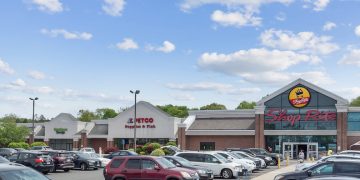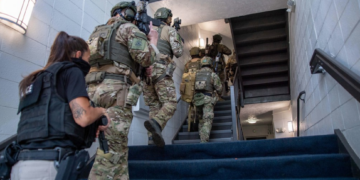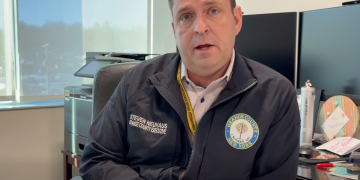Shoes can take a beating and so can cobblers. Shops have shrunk or, more familiarly, closed. But they haven”™t gone away and for those that have survived, a new frugality born of tough times could mean a light at the end of the tunnel.
In the old days, shoe repair was a highly specialized craft passed down from generation to generation.
Now, that tradition is largely gone and the demands of customers have changed, according to one shop owner.
“Shoe repair has always had its highs and lows, but our business is almost finished,” said Luke Vaccaro, owner of Vaccaro Shoe Repair in Scarsdale. “Westchester at one time had about 70 shoe repair shops. Now there are maybe 10. In 1970, my shop had 12 people working there; now we”™re down to five.”
Vaccaro, whose grandfather started the business in 1929, said the industry, which started to decline in the early 1980s, “really died in the early 90s and hasn”™t recovered since.”
There are many reasons for the decline of the shoe repair industry, including “the mentality of America is not to repair” and many customers who would have hung on to a pair of shoes for a long time now opt to buy new ones rather than fix the old ones.
Also, “most of the men”™s shoes are pretty casual today,” unlike the fancy high-end shoes men used to wear. Ladies who are concerned about scuffing their high heels don”™t wear their dress shoes to work, but rather change out of a pair of sneakers or casual shoes once they get to work.Â
The slow decline of customers has caused the industry to decline as a whole, including suppliers of materials and machine manufacturers.
“The combination of everything has killed our industry,” Vaccaro said. “I”™m fortunate to be in an affluent place where people have very good shoes, so we have customers.”
Vaccaro said he does “a lot of odds and ends that keep us going,” such as repairing zippers, handbags and luggage.
Vaccaro said of those shoe repairmen who are still in business, “a lot of these guys started like me and grew up in the industry.”
One of those guys is Paul Chillemi, whose experience as a small business owner was put to the test before he even had a driver”™s license.
At the age of 12 Chillemi, who grew up working in his father”™s shoe repair shop, was left in charge of the business for three weeks while his father attended a funeral in Italy.
Peter Chillemi, impressed with his son”™s performance, officially made Paul owner of Chillemi Shoe Repair in White Plains 20 years ago.
“He was 11 years old when he started coming here after school,” Peter Chillemi said of Paul. “I”™ve taught him everything I know. As a matter of fact, he”™s better than me now.”
When Peter Chillemi opened the shop at 6 Mamaroneck Avenue (now located in the White Plains Mall on Hamilton Avenue) with his two brothers in 1949, there were about 15 cobblers in the city.
Now, there are only two, and business has been up at the Chillemi”™s shop.
“In the last six months business has increased,” Chillemi said. “I”™ve got people walking in bringing in shoes even on Sunday! I”™ve been working seven days a week since September. Some nights I”™m here until 10 or 11 o”™ clock at night.”
Chillemi can repair “almost everything” when it comes to shoes, which can be highly specialized work. The store also carries a full retail store and sells shoe polish, dyes and a line of work boots.
Gabfeok Shim, owner of Valentino Shoe Repair in Dobbs Ferry, has noticed a recent increase in demand for low- priced repair jobs, such as women”™s heel replacements for an average of $10.
“Business has been up the past month,” Shim said.Â
Shim, who also carries a line of watch batteries, said customers are coming in with several watches at a time.
















